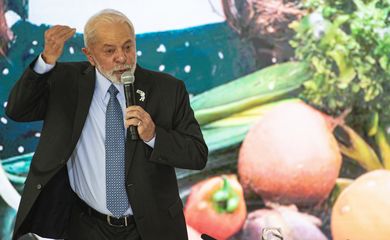In 2 years, 13 mi Brazilians no longer go hungry

A survey conducted by the Zero Hunger Institute reveals a substantial decrease in the number of people facing severe food insecurity in Brazil. The figures dropped from 33 million in the first quarter of 2022 to 20 million in the fourth quarter of 2023, representing a decline of 13 million individuals experiencing hunger in the country.

The research used data from the Continuous National Household Sample Survey for 2022 and 2023 (Pnad Contínua), complemented by information from the 2017-2018 Household Budget Survey (POF), to develop its mathematical models.
"One caveat must be emphasized. The estimate analyzed here is preliminary and should be viewed as a scenario analysis of the overall situation regarding food and nutritional insecurity in Brazil, alongside its macroeconomic indicators," the study highlights.
"The indicators' behavior depicts a scenario of stability in the factors influencing food and nutritional insecurity, suggesting a potential decrease in the prevalence of food insecurity," the text reads.
The study further indicates that in 2022, Brazil was gripped by a severe food insecurity crisis, affecting 65 million individuals with nutritional constraints. "However, in 2023, following political changes and economic measures—such as the reinstatement of the Novo Bolsa Família social program and the expansion of the BPC [Continuous Cash Benefit—a minimum wage granted to disabled and elderly people over the age of 67 who can prove that they do not have the means to provide for themselves]—there was an improvement."
"Despite the encouraging results, the findings emphasize the ongoing necessity for coordinated efforts to combat food insecurity. The study underscores the significance of reliable data and strategic opportunities to guide future public policies and interventions," notes the institute.
"In light of these advancements, the effort to ensure food security for all Brazilians remains ongoing. Collaboration among researchers, policymakers, and civil society will be crucial in addressing persistent challenges and fostering a more equitable and secure future for everyone," advocates the Zero Hunger Institute.




